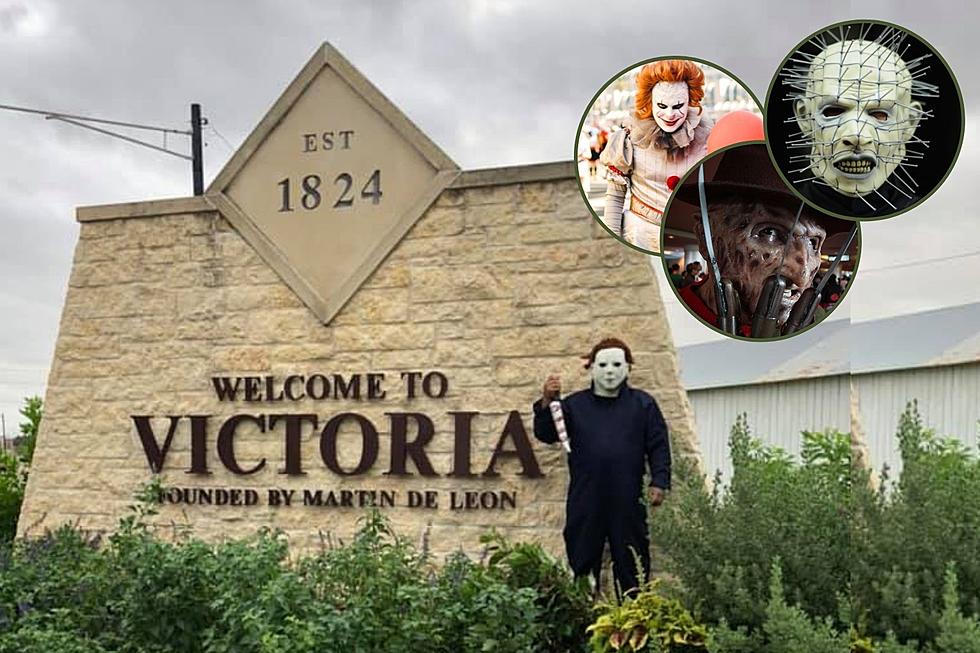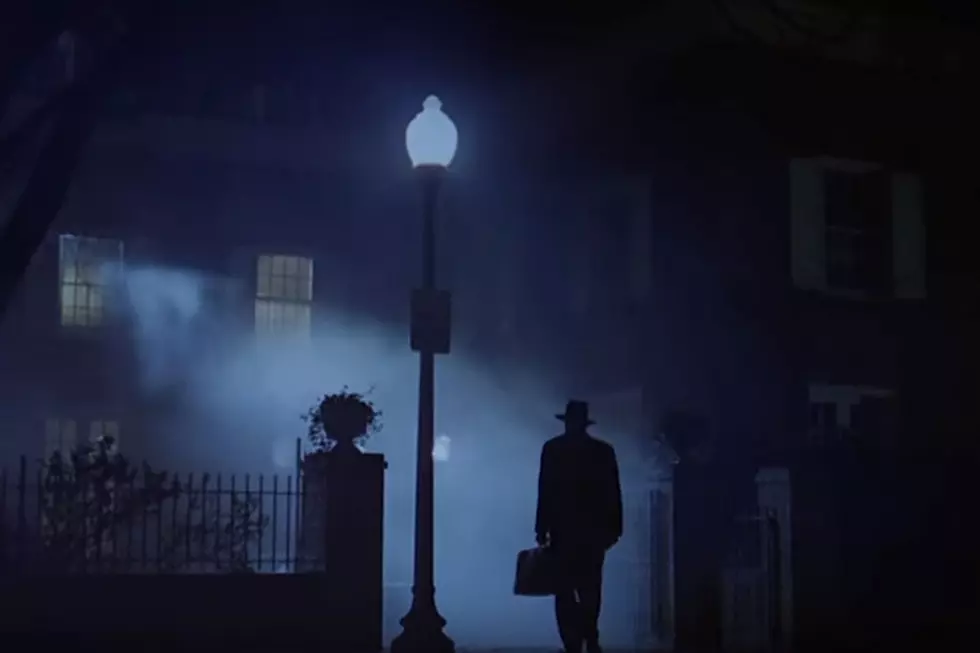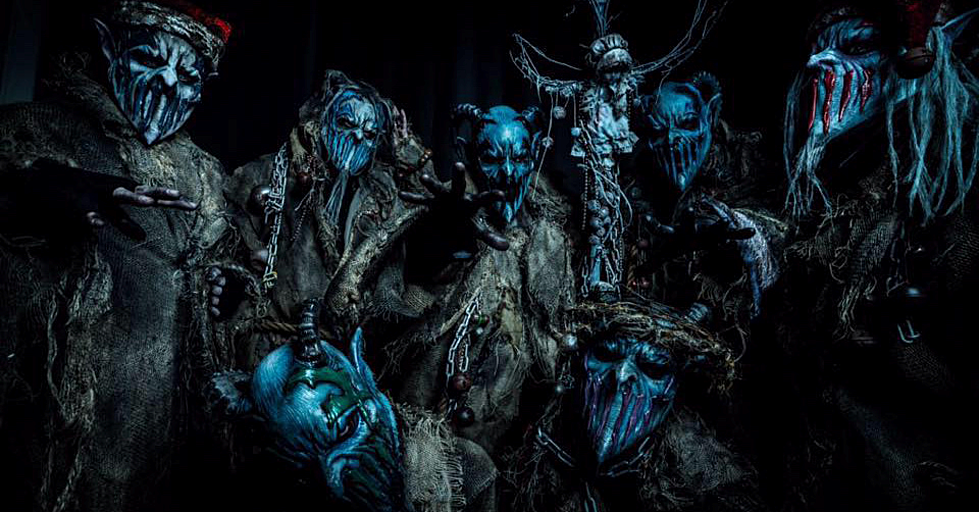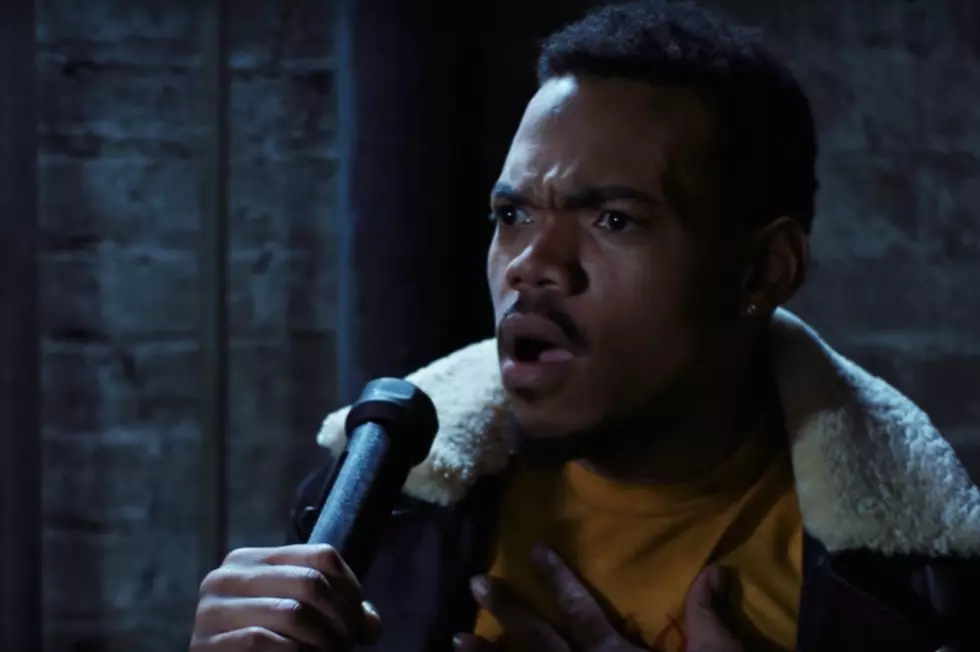
5 Stupid Things Horror Movie Characters Do (That Even Piss Off Horror Writers) — By Simon Barrett of ‘You’re Next’
We all have things that drive us mad in horror movies (Oh your brand new car magically won't start?) but what about someone who writes horror? What type of things do the creators of our favorite movies cringe at seeing on screen?
Simon Barrett definitely knows a thing or two about the horror genre -- he wrote 'You're Next', and another amazing horror flick, 'V/H/S-2'. Simon was kind enough to let us in on five horribly stupid things horror movie characters do and explains why those things are so obnoxious.
Have a 'Vlog'
Maybe you don’t remember this term, “vlog.” You’re probably regarding your screen right now with a puzzled expression, pondering its vague familiarity. Maybe you have an uncomfortable feeling, like a bad memory you can’t fully recollect.
You see, in the early aughts, Hollywood discovered the concept of the internet and with it, the “vlog.” Around this time, the found footage horror subgenre went mainstream, and it became fashionable to have a character in each movie who randomly films everything happening for no good reason. Frequently this character would say things like, “This needs to go up on my YouTube channel!” or “This is the kind of stuff I need if I’m going to make it as a journalist,” thereby promptly the audience to instantly loathe them and wish for their immediate demise, which never happened because they were the character operating the camera.
The “vlogger” character has fallen out of fashion in the past couple of years, but I worry that with new video interface additions to social media, it is going to make big comeback. People in real life who film everything and address an imaginary audience when speaking into their cameras should be avoided at all cost, and why anyone would want to watch a film featuring such a character, unless its plot was a bitter character study of delusional narcissism, eludes me.
Work as a writer
Writers are boring. I can tell you this with authority because I primarily make my living now as a writer. It means that I spend most of my waking hours wearing headphones, glaring at my laptop screen and wondering if there might be some pornography on the internet I haven’t seen yet. Writers are dull, introverted, self-obsessed and make a living doing the least visually interesting thing imaginable.
So why are so many characters in horror films writers? Well, probably because horror films are written by writers who’ve led lives so sheltered that they can’t fully fathom another profession. This is known, by the way, as incredibly bad writing. Horror writers often don’t recognize how boring they are. So when conceiving a screenplay, they’ll say to themselves, ‘I know! I’m awesome, so I’ll just make the protagonist like me!’ Meanwhile, their neighbors avoid them, their children despise them, and their spouse has been sleeping with their yoga instructor for months.
Whenever I see a horror movie where the protagonist is a writer and clearly a wish fulfillment analog for the loser who wrote the script, I thrash in my seat with shame for my professional peers. That said, my next screenplay is about a financially challenged indie screenwriter who women mysteriously find sexually irresistible, and I think it’s pretty emotionally moving stuff.
Spout biographical dialogue
How many horror films have you seen where the characters are introduced en route to a remote location, and during the course of that scene they say something like, “Hey, Tom, when are you ever going to tell Cindy you like her? You guys have been working at the same bookstore together for two years. Also, I’m sick of you guys not trusting me because I tried to kill myself. Anyway, when are we getting to this house I inherited from my estranged father?”
People don’t talk like this. In this hypothetical scene, you would never say any of this to Tom, because Tom already knows all of this information. He’s either lived it, or it’s the reason he’s in the car. You’ll notice the next time you’re driving to the grocery store, you won’t say to the person next to you, “Hey, can’t wait to get to the grocery store. Planning to buy some groceries there.” You talk about other things, because the manifest never needs to be stated.
In the vast majority of horror films, the first scene a character is in will consist of them saying, “This is who I am, this is what I do, and this is why I am here.” These are all things that people almost never actually say in real life, because they are apparent. Occasionally a character will leave out a bit of information that is pointlessly withheld from the audience so it can be revealed later in a “surprise” revelation. This is the opposite of creating genuine mystery. It’s horrid.
Bicker
Horror movies are more suspenseful if the viewer is emotionally engaged on some level with the characters. It’s simple: if you identify with the protagonist, and care what happens to him or her on some level, then you’re more invested and engaged with the film, and more frightened when the protagonist is in danger.
Most horror screenwriters don’t know how to actually write interesting characters, so they approach this problem by giving all of the characters needless dramatic subplots, which causes the opposite of its intended effect while also conveniently allowing for annoying exposition (see #3). Maybe a character cheated on his girlfriend, or is planning to propose to her, or is worried they’ll break up when she goes off to college. That’s fine in a drama or comedy where the film is actually about that, but in a horror movie that’s actually about a vengeful ghost or masked killer, no one watching the film has any reason to give a fuck.
In real life, when something scary is happening, people bond together, forget their differences, and unite for the sake of survival. It doesn’t matter if you hate someone; when a building is on fire and the two of you need to get out, your personal issues are likely to be off the table.
In horror movies, though, characters almost always have personal strife with each other, and it comes up again, and again, and again, even when they’re hiding after being chased through the woods. This may be obvious, but effective drama should be organic to film’s main story, and be either part of the primary plot or inform or enhance that plot. If the main plot would be unaffected if the details of a character’s background were different, then that information shouldn’t be in the film, and any time spent on it just wastes an audience’s time and causes them to like the characters less, not more, because it’s annoying.
Pair Off to Have Sex in a Dark, Isolated Location
Actually, this is an excellent idea and it should happen in every horror movie.
If you want to see more from Simon, V/H/S-2 is available now on-demand and, of course, You're Next hits theaters August 23rd. You can also follow Simon on Twitter for, not only updates, but also top notch jokes.
More From KLUB Tejano 106.9










